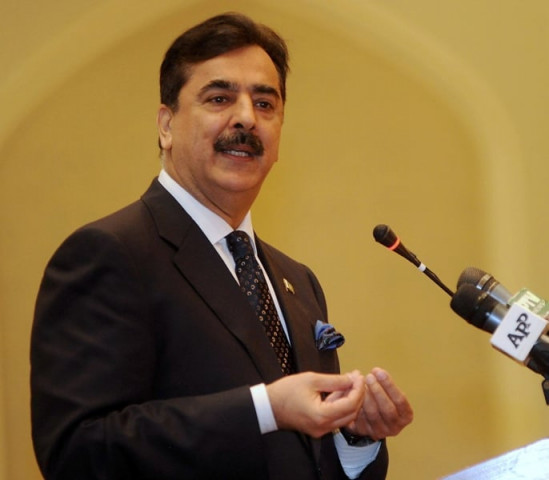My resignation is not a routine matter: Gilani
Prime minister upholds parliamentary committee's review of foreign policy during media talk.

Answering a question regarding Difa-e-Pakistan Council’s (DPC) call to stage protests if Nato supply routes are reopened, Gilani affirmed that the supplies were neither closed nor will they be reopened on their advice. “Signatures of the religious parties are also there [on parliament’s revised foreign policy] who were a part of the [parliamentary committee on] national security.”
He added that the parliament is a “responsible parliament” and whatever decision it takes will be in the benefit of the people. “The parliament is the people’s mandate. It is not an easy task to satisfy every single person.”
On Leader of the Opposition Chaudhry Nisar Ali Khan’s reservations with the parliamentary report, Gilani stated: “The national security [committee] was not made by me. It was formed by the speaker and all the political parties had their representation, including the party of the leader of the opposition.
“Whoever has reservations would be given ample opportunity to express their point of view. This point of view is of the parliamentary committee, not of an exclusive government party.”
Referring to his earlier statement where Gilani said that the chief justice of Supreme Court is his friend, a journalist asked the premier whether he is in contact with “his friend” for an out-of-court settlement. Gilani, in reply, remarked that even the idea of an out-of-court settlement is in contempt of the court.
“Once a friend, always a friend… His [chief justice’s] two friends – one who was a part of his restoration and the other who was a part of the lawyers’ movement – both are present in the court in the case,” said the prime minister.



















COMMENTS
Comments are moderated and generally will be posted if they are on-topic and not abusive.
For more information, please see our Comments FAQ